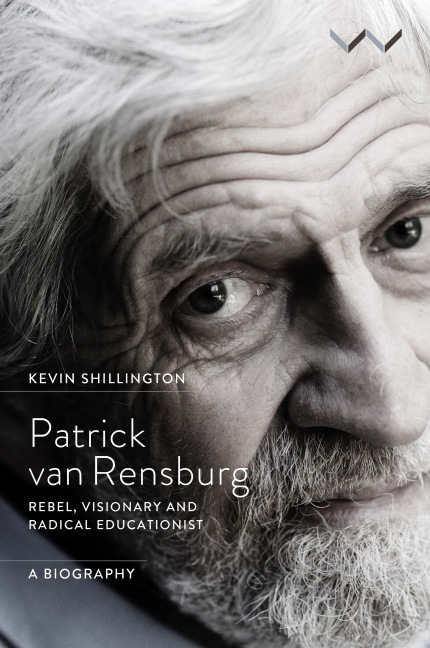Book contents
- Frontmatter
- Dedication
- Contents
- Acknowledgements
- Abbreviations and Acronyms
- List of Illustrations
- Maps
- Introduction
- 1 Origins and Identity in South Africa
- 2 An Anglophone South African, 1936–1948
- 3 The Making of an Afrikaner, 1949–1953
- 4 Diplomat and Rebel, 1953–1957
- 5 Anti-Apartheid Activist, 1957–1959
- 6 Boycott, 1959–1960
- 7 Into Exile, 1960–1961
- 8 Return to Africa, 1961–1962
- 9 The Founding of Swaneng Hill School, 1962–1963
- 10 Challenging ‘The Ladder to Privilege’, 1963–1965
- 11 The Alternative Educationist, 1965–1967
- 12 Expansion and Replication, 1967–1969
- 13 Time of Crisis, 1969–1971
- 14 Education with Production, the 1970s
- 15 Foundation for Education with Production and Spreading the Word, the 1980s
- 16 Education with Production and South Africa, the 1990s
- 17 Return to Botswana
- Epilogue
- Notes
- Bibliography
- Index
8 - Return to Africa, 1961–1962
Published online by Cambridge University Press: 10 September 2020
- Frontmatter
- Dedication
- Contents
- Acknowledgements
- Abbreviations and Acronyms
- List of Illustrations
- Maps
- Introduction
- 1 Origins and Identity in South Africa
- 2 An Anglophone South African, 1936–1948
- 3 The Making of an Afrikaner, 1949–1953
- 4 Diplomat and Rebel, 1953–1957
- 5 Anti-Apartheid Activist, 1957–1959
- 6 Boycott, 1959–1960
- 7 Into Exile, 1960–1961
- 8 Return to Africa, 1961–1962
- 9 The Founding of Swaneng Hill School, 1962–1963
- 10 Challenging ‘The Ladder to Privilege’, 1963–1965
- 11 The Alternative Educationist, 1965–1967
- 12 Expansion and Replication, 1967–1969
- 13 Time of Crisis, 1969–1971
- 14 Education with Production, the 1970s
- 15 Foundation for Education with Production and Spreading the Word, the 1980s
- 16 Education with Production and South Africa, the 1990s
- 17 Return to Botswana
- Epilogue
- Notes
- Bibliography
- Index
Summary
Having finished his writing tasks for the two publishers, Patrick began thinking seriously about his future. As far as his relationship with Liz was concerned, it was accepted between them that when they were settled and knew something of their future they would marry. But how might he earn his living and where might they live?
Patrick was growing increasingly uncomfortable with the concept of being a permanent émigré. He could not envisage any career path for himself in the United Kingdom. Besides, there were still suspicions among some of his fellow exiles about the speed and ease of his flight into exile and this may have burdened him with a degree of guilt.
He could not throw off the sense that he ought to go back home and join the struggle, even if it meant going underground with a high risk of capture and imprisonment, probable assault and possible torture. The only alternative he could think of would be to go to one of the protectorates (the ‘High Commission Territories’), where he would at least be close to home and, as an exile, perhaps provide some support to those within South Africa who were struggling against apartheid.
The idea of a career in education had probably first been planted in Patrick's mind by the offer of a teaching job in Johannesburg in 1959. Since then he had seen the inspiring work of Frank Krawolitski, involving young South Africans in work camps to build a primary school in Swaziland. Krawolitski's playing and singing of Beethoven's Ninth in the remote bush while conducting a volunteer project for the local community was the sort of image that appealed to Patrick.
He could see himself in a similar role. While in Serowe he had learned that what was needed in the Bamangwato capital was a local secondary school, though there is no evidence that he discussed this issue with Seretse Khama at the time. The only secondary school in the northern half of Bechuanaland was Moeng College, a communal self-help project, the brainchild of Tshekedi Khama.
The school, which had opened in 1949, was a boarding school in a remote site in the Tswapong Hills to the east of ‘the line of rail’ and more than 100 kilometres from Serowe.
- Type
- Chapter
- Information
- Patrick van RensburgRebel, Visionary and Radical Educationist, a Biography, pp. 111 - 124Publisher: Wits University PressPrint publication year: 2020



